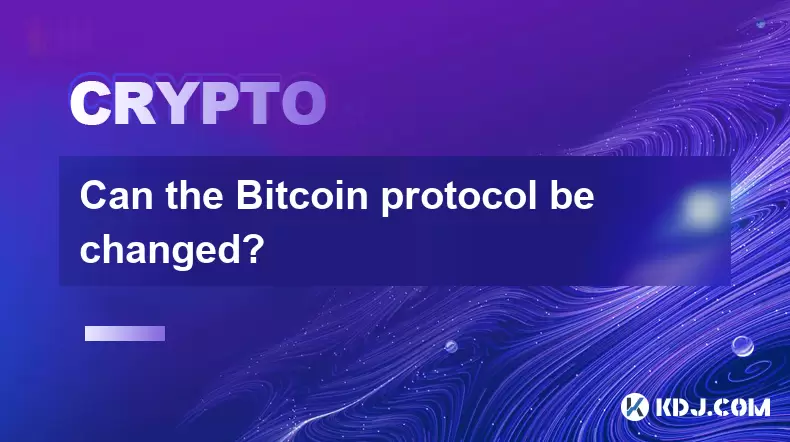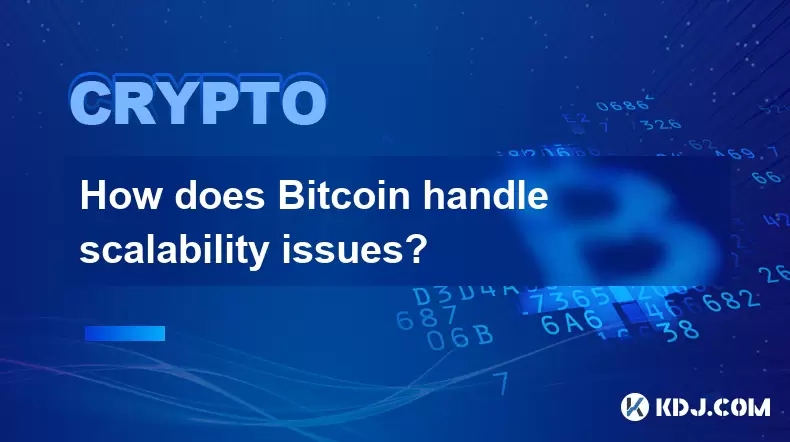-
 Bitcoin
Bitcoin $117500
2.15% -
 Ethereum
Ethereum $3911
6.19% -
 XRP
XRP $3.316
10.79% -
 Tether USDt
Tether USDt $1.000
0.01% -
 BNB
BNB $787.2
2.24% -
 Solana
Solana $175.2
4.15% -
 USDC
USDC $0.9999
0.00% -
 Dogecoin
Dogecoin $0.2225
8.40% -
 TRON
TRON $0.3383
0.28% -
 Cardano
Cardano $0.7868
6.02% -
 Stellar
Stellar $0.4382
9.34% -
 Hyperliquid
Hyperliquid $40.92
7.56% -
 Sui
Sui $3.764
7.63% -
 Chainlink
Chainlink $18.48
10.66% -
 Bitcoin Cash
Bitcoin Cash $582.1
1.88% -
 Hedera
Hedera $0.2601
6.30% -
 Avalanche
Avalanche $23.33
4.94% -
 Ethena USDe
Ethena USDe $1.001
0.02% -
 Litecoin
Litecoin $122.3
2.04% -
 UNUS SED LEO
UNUS SED LEO $8.969
-0.27% -
 Toncoin
Toncoin $3.339
0.86% -
 Shiba Inu
Shiba Inu $0.00001287
4.30% -
 Uniswap
Uniswap $10.43
7.38% -
 Polkadot
Polkadot $3.861
5.08% -
 Dai
Dai $1.000
0.02% -
 Bitget Token
Bitget Token $4.513
3.41% -
 Monero
Monero $267.7
-6.18% -
 Cronos
Cronos $0.1499
4.14% -
 Pepe
Pepe $0.00001110
5.15% -
 Aave
Aave $284.9
8.28%
Bitcoin investment introductory guide: How can ordinary people buy to make money?
Bitcoin, a decentralized digital currency, offers high return potential and can be bought on exchanges like Coinbase; store it securely in wallets like Ledger for safety.
May 30, 2025 at 03:42 am

Bitcoin, the world's first and most well-known cryptocurrency, has captured the attention of investors worldwide. For ordinary people looking to enter the world of Bitcoin investment, understanding the basics and the steps to acquire and potentially profit from it is crucial. This introductory guide will walk you through the essentials of Bitcoin investment and how you can start your journey.
What is Bitcoin and Why Invest in It?
Bitcoin is a decentralized digital currency that operates on a peer-to-peer network, allowing users to send and receive payments without the need for intermediaries like banks. Created in 2009 by an anonymous person or group using the pseudonym Satoshi Nakamoto, Bitcoin's value is determined by supply and demand in the market.
Investing in Bitcoin can be appealing for several reasons. Firstly, it has the potential for high returns, as evidenced by its historical price surges. Secondly, it serves as a hedge against inflation and currency devaluation, as it is not controlled by any central authority. Lastly, the growing acceptance of Bitcoin by businesses and institutions adds to its credibility and potential for long-term growth.
How to Buy Bitcoin
Buying Bitcoin is relatively straightforward, but it requires careful consideration and preparation. Here are the steps to get started:
Choose a Cryptocurrency Exchange: Start by selecting a reputable cryptocurrency exchange that suits your needs. Popular options include Coinbase, Binance, and Kraken. Consider factors such as fees, security, and user experience when making your choice.
Create an Account: Once you've chosen an exchange, sign up for an account. You'll need to provide personal information and complete a verification process, which may include submitting a government-issued ID.
Secure Your Account: Enable two-factor authentication (2FA) to add an extra layer of security to your account. This typically involves using an authenticator app or receiving a code via text message.
Deposit Funds: After your account is set up and secured, deposit funds into your exchange account. Most exchanges accept bank transfers, credit/debit cards, and sometimes even PayPal.
Buy Bitcoin: Navigate to the trading section of the exchange and select Bitcoin (BTC). Enter the amount you wish to buy and complete the transaction. The Bitcoin will then be credited to your exchange wallet.
Storing Your Bitcoin Safely
Once you've purchased Bitcoin, it's essential to store it securely. While you can keep your Bitcoin on the exchange, it's generally safer to transfer it to a personal wallet. There are several types of wallets to choose from:
Hardware Wallets: These are physical devices that store your Bitcoin offline, offering the highest level of security. Popular options include Ledger and Trezor.
Software Wallets: These are applications that you can install on your computer or mobile device. They offer a good balance of security and convenience. Examples include Exodus and Electrum.
Paper Wallets: These involve printing out your Bitcoin private keys and public addresses on a piece of paper. While secure, they can be less convenient to use.
To transfer your Bitcoin from the exchange to your wallet, follow these steps:
Generate a Receiving Address: Open your wallet and generate a new receiving address.
Initiate the Transfer: On the exchange, select the "Withdraw" or "Send" option, enter the amount of Bitcoin you want to transfer, and input the receiving address from your wallet.
Confirm the Transaction: Double-check the details and confirm the transaction. The Bitcoin should arrive in your wallet within a few minutes to an hour, depending on network congestion.
Strategies for Making Money with Bitcoin
There are several strategies that ordinary people can use to potentially make money with Bitcoin. Here are some of the most common approaches:
HODLing: This strategy involves buying Bitcoin and holding onto it for the long term, with the expectation that its value will increase over time. It requires patience and a belief in Bitcoin's future potential.
Trading: Active trading involves buying and selling Bitcoin to take advantage of short-term price fluctuations. This approach can be more lucrative but also comes with higher risks and requires a good understanding of market trends and technical analysis.
Dollar-Cost Averaging (DCA): This strategy involves investing a fixed amount of money into Bitcoin at regular intervals, regardless of the price. It helps to mitigate the risk of investing a large sum at a peak price and can lead to better average entry points over time.
Staking and Lending: Some platforms allow you to stake your Bitcoin or lend it to others in exchange for interest. While this can provide a passive income stream, it also comes with risks, as you're essentially lending your assets to others.
Understanding the Risks
While the potential for profit is significant, investing in Bitcoin also comes with considerable risks. It's important to understand these risks before diving in:
Volatility: Bitcoin's price can be highly volatile, with significant fluctuations occurring over short periods. This can lead to substantial gains or losses.
Regulatory Risks: Governments around the world are still grappling with how to regulate cryptocurrencies. Changes in regulations can impact the value and usability of Bitcoin.
Security Risks: While Bitcoin itself is secure, the platforms and wallets used to store it can be vulnerable to hacks and scams. Always use reputable services and follow best practices for security.
Market Risks: The cryptocurrency market is influenced by various factors, including technological developments, market sentiment, and macroeconomic trends. These can all impact Bitcoin's price.
Getting Started with a Small Investment
For ordinary people looking to invest in Bitcoin, starting small can be a wise approach. Investing an amount you can afford to lose allows you to gain experience and confidence without risking significant financial loss. Here are some tips for getting started with a small investment:
Start with a Small Amount: Begin by investing a small amount, such as $100 or less, to get a feel for the process and the market.
Educate Yourself: Continuously educate yourself about Bitcoin and the cryptocurrency market. There are numerous resources available, including online courses, books, and forums.
Diversify: Consider diversifying your investment across different cryptocurrencies to spread risk. While Bitcoin is a good starting point, other cryptocurrencies may offer additional opportunities.
Monitor and Adjust: Keep an eye on your investment and be prepared to adjust your strategy as needed. The cryptocurrency market can change rapidly, and staying informed is key.
Frequently Asked Questions
Q: Is it too late to invest in Bitcoin?
A: While Bitcoin has experienced significant growth, it continues to be a dynamic and evolving asset. Many believe there is still room for growth, but it's important to do your own research and consider your risk tolerance before investing.
Q: How much should I invest in Bitcoin?
A: The amount you should invest in Bitcoin depends on your financial situation, risk tolerance, and investment goals. It's generally recommended to only invest what you can afford to lose, especially given the volatility of the cryptocurrency market.
Q: Can I lose all my money investing in Bitcoin?
A: Yes, it is possible to lose all your money investing in Bitcoin. The cryptocurrency market is highly volatile, and there are no guarantees of profit. Always invest responsibly and be aware of the risks involved.
Q: Do I need to pay taxes on my Bitcoin profits?
A: Yes, in many jurisdictions, profits from Bitcoin and other cryptocurrencies are subject to capital gains tax. It's important to consult with a tax professional to understand your specific tax obligations.
Disclaimer:info@kdj.com
The information provided is not trading advice. kdj.com does not assume any responsibility for any investments made based on the information provided in this article. Cryptocurrencies are highly volatile and it is highly recommended that you invest with caution after thorough research!
If you believe that the content used on this website infringes your copyright, please contact us immediately (info@kdj.com) and we will delete it promptly.
- Tron's Sell-Off Spurs Altcoin Shift: What's Next for TRX?
- 2025-08-08 08:30:12
- RUVI Presale: Is the Growth Potential Real?
- 2025-08-08 09:10:12
- Sleep Token's US Takeover: Thornhill Rides the 'Even In Arcadia' Wave
- 2025-08-08 08:30:12
- FTT Token's Wild Ride: Creditor Repayments vs. Market Drop - A New Yorker's Take
- 2025-08-08 07:10:12
- Floki Crypto Price Prediction: Riding the Robinhood Rocket or Just a Meme?
- 2025-08-08 07:15:12
- EigenLayer, Restaking, and Ethereum: Navigating the Hype and the Hazards
- 2025-08-08 06:30:12
Related knowledge

Can the Bitcoin protocol be changed?
Aug 07,2025 at 01:16pm
Understanding the Bitcoin ProtocolThe Bitcoin protocol is the foundational set of rules that govern how the Bitcoin network operates. It defines every...

How are Bitcoin transactions verified?
Aug 08,2025 at 06:57am
Understanding Bitcoin Transaction VerificationBitcoin transactions are verified through a decentralized network of nodes and miners that ensure the le...

How does decentralization make Bitcoin secure?
Aug 08,2025 at 09:35am
Understanding Decentralization in BitcoinDecentralization is a foundational principle of Bitcoin's architecture and plays a critical role in its secur...

What are some common misconceptions about Bitcoin?
Aug 07,2025 at 07:22pm
Bitcoin is Just Like Regular MoneyA widespread misconception is that Bitcoin functions identically to traditional fiat currencies like the US dollar o...

Is Bitcoin a solution for inflation?
Aug 08,2025 at 04:57am
Understanding Inflation and Its Impact on Traditional CurrenciesInflation refers to the sustained increase in the price of goods and services over tim...

How does Bitcoin handle scalability issues?
Aug 07,2025 at 10:54am
Understanding Bitcoin’s Scalability ChallengeBitcoin’s design prioritizes decentralization, security, and immutability, but these principles come with...

Can the Bitcoin protocol be changed?
Aug 07,2025 at 01:16pm
Understanding the Bitcoin ProtocolThe Bitcoin protocol is the foundational set of rules that govern how the Bitcoin network operates. It defines every...

How are Bitcoin transactions verified?
Aug 08,2025 at 06:57am
Understanding Bitcoin Transaction VerificationBitcoin transactions are verified through a decentralized network of nodes and miners that ensure the le...

How does decentralization make Bitcoin secure?
Aug 08,2025 at 09:35am
Understanding Decentralization in BitcoinDecentralization is a foundational principle of Bitcoin's architecture and plays a critical role in its secur...

What are some common misconceptions about Bitcoin?
Aug 07,2025 at 07:22pm
Bitcoin is Just Like Regular MoneyA widespread misconception is that Bitcoin functions identically to traditional fiat currencies like the US dollar o...

Is Bitcoin a solution for inflation?
Aug 08,2025 at 04:57am
Understanding Inflation and Its Impact on Traditional CurrenciesInflation refers to the sustained increase in the price of goods and services over tim...

How does Bitcoin handle scalability issues?
Aug 07,2025 at 10:54am
Understanding Bitcoin’s Scalability ChallengeBitcoin’s design prioritizes decentralization, security, and immutability, but these principles come with...
See all articles

























































































